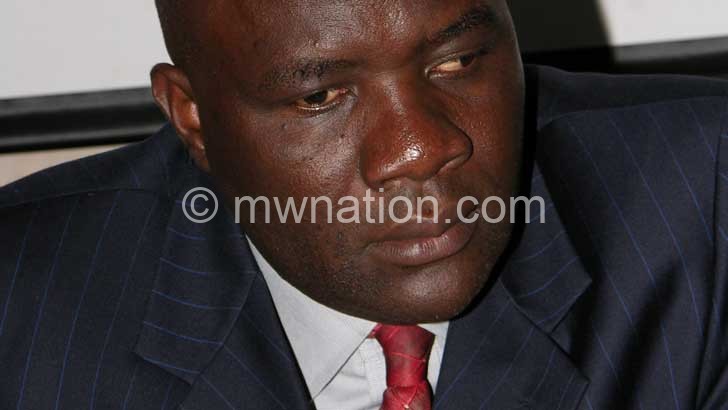In favour or not of proportional representation
The Malawi Electoral Commission (MEC) has conducted a number of by-elections following deaths of some legislators and counsellors. Covid-19-related deaths and nullification of poll results by courts in some cases have worsened the situation. A debate has ensued, with some proposing adoption of proportional representation (PR) to save time and costs of conducting by-elections, and others supporting the current first-past-the-post system. Our News Analyst FRANK NAMANGALE engaged secretary general of the former governing United Democatic Front (UDF), KANDI PADAMBO for the party’s position on the matter.

In PR system, the one practiced in South Africa, people vote for political parties, which then share the seats proportionally depending on the number of parliamentary election votes a party amasses, whereas in our first-past-the-post system, individuals, including independent candidates contest. What is the UDF’s position on this debate?
The proportional representation has many variations. The system in its various forms is practiced in many countries in Africa and beyond. The majority of countries in Europe, including each and every one of the Scandinavian countries have adopted proportional representation for electing their parliamentary representatives. Like the first-past-the-post, which we use in Malawi now, proportional representation has its advantages and disadvantages. But the point is to look at our situation and political landscape and decide objectively what can serve us best in terms of citizen representation.
It is indisputable that voting patterns in Malawi reflect our ethnic makeup. People tend to look at political parties in terms of the ethnic or regional origin of the leadership in those parties. Surely this is not healthy. Our system tends to distort the general view of the citizenry when it comes to translating that general view into parliamentary seats. Some have also argued that in an ethnically heterogeneous society like Malawi, the first-past-the-post electoral system tends to exacerbate ethnically motivated political tensions.
Before we proceed, can you briefly highlight what you think is good about proportional representation?
Proportional representation approximates parliamentary seats for each party to its actual popularity on the ground as reflected in the national vote. It is also cost-effective as all the costs associated with by-elections are avoided. Another advantage is that it is very easy to ensure and achieve social inclusion under proportional representation as political parties can be obligated to have the required proportions of marginalised groups on their party lists. It is not by coincidence that the proportion of women and other marginalised groups in public spaces is impressively high in South Africa, Scandinavian countries and other jurisdictions that have adopted proportional representation.
In preparation for electoral reforms and for consolidating our contribution to the set up of the Special Law Commission, UDF had a brainstorming session which was presided over by our president Rt. Hon. Atupele Muluzi, and was attended by most of our members of Parliament and NEC. Perhaps because of the factors I have mentioned, the overwhelming view was for proportional representation. That has remained the position of the party.
What more can it take to have the current system changed?
We have to amend our electoral laws and perhaps before that, embark on civic education on how proportional representation works and its advantages and disadvantages as compared with the current electoral system.
All said, do you find the concerns on spending more on by-elections justifiable?
Democracy has a cost. As long as we opted for multiparty democracy, we must be prepared to meet the financial and social costs that accompany it. But if there is a way or ways in which we can manage our democracy better and more prudently both from a financial and social perspective, we must hasten to embrace those ways. One such way is switching to an electoral system that will save us billions of Kwacha equivalents of our scarce resources which we have to draw from public coffers every time we have to hold a by-election. But our electoral system must also contribute towards social cohesion by acknowledging the nationwide support that almost all our political parties in Parliament enjoy, to varying degrees, through parliamentary representation. Our current electoral system distorts and downplays that nationwide support of our political parties.





